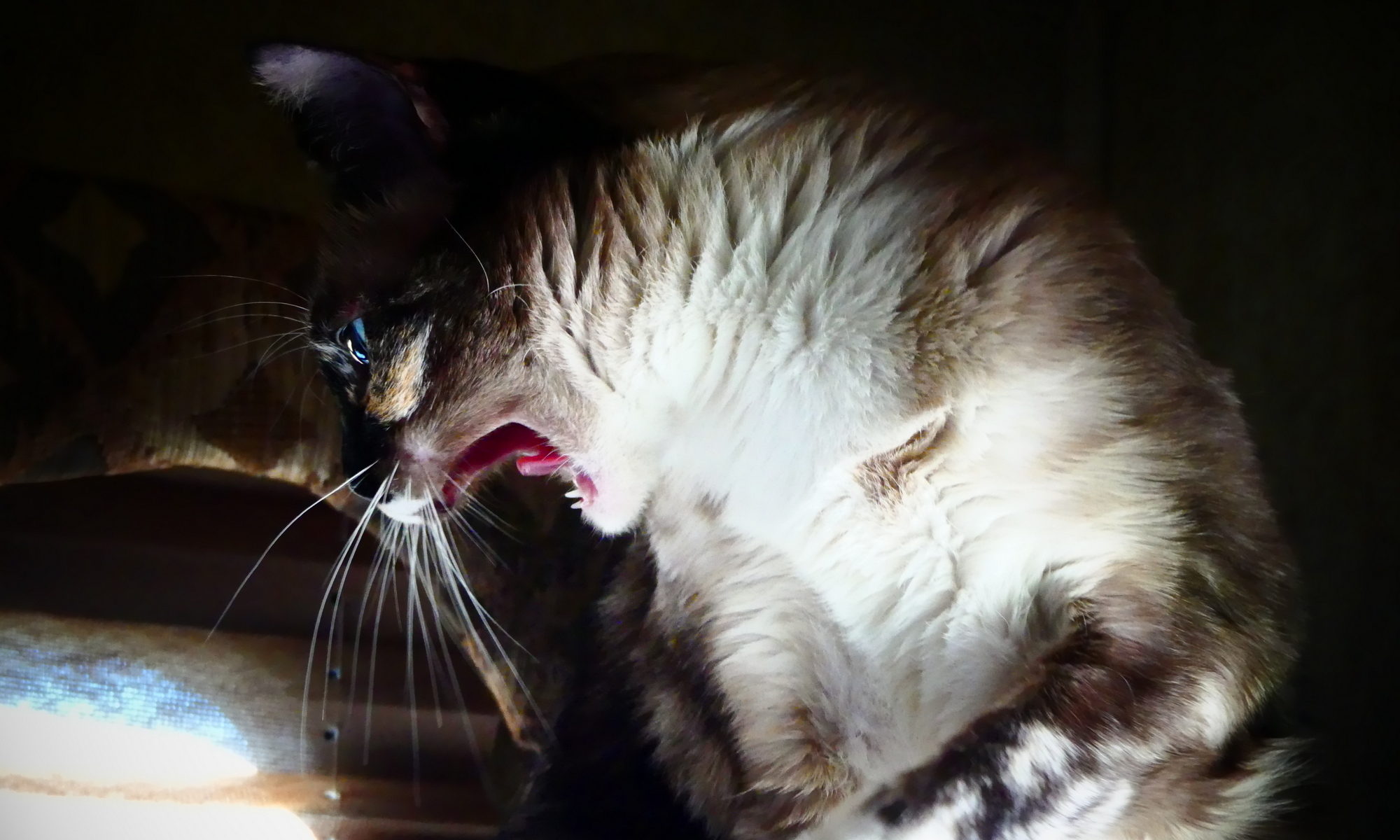“The illusionist” – (2010, UK/France, 80 minutes – rated PG)
Note: this review contains spoilers.
Adapted from an original script written by Jacques Tati in 1956, “the illusionist” retains all the charms from Sylvain Chomet’s previous animated film “the triplettes of Belleville”.
Watch the trailer here:
“The illusionist” is a very different kind of film though, partly because it is semi-autobiographical, but mainly perhaps because of the controversy as to which of Tati’s daughters the script was dedicated. Tati had a daughter out of wedlock during WWII with an Austrian dancer named Herta Schiel. Pressured by his sister, Tati abandoned mother and child, and went on to start a family with Micheline Winter, with whom he had a second daughter, Sophie, and a son named Pierre.
Each side lays claim to Tati’s original intent. Did he write out of sorrow and guilt for abandoning Helga Marie, or regret at having missed much of Sophie’s childhood while on the road?
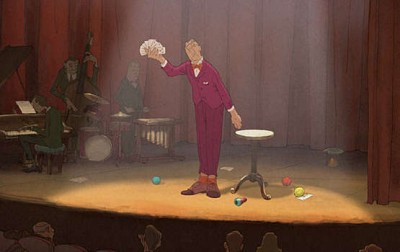
Difficult to answer without reading the original script and knowing more about Tati as a man. And should any of this really matter to audiences..?
Let’s start with the story, at least the Chomet adaptation. “The illusionist” Tatischeff (Jacques Tati’s real name) barely gets by, performing in music halls in which the main attraction tends to be British rock groups with limp-wristed performers contorting on stage to great applause (perhaps a bit of a nasty dig, there…)
Tatischeff’s act consists of tried and true card and hat tricks executed well enough, if it were not for a semi-rabid, nippy rabbit who likes to sleep on the illusionist’s stomach at night.
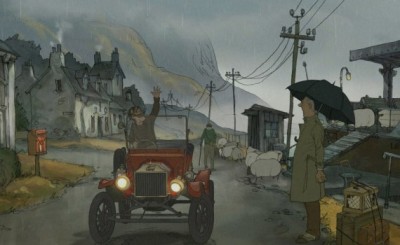
Tatischeff goes on tour, perhaps his last, ending up in Scotland (Chomet himself lives in Edinburgh) where he performs at private parties and small venues, like pubs.
It is in one of these pubs that a young cleaning girl comes into the aging magician’s existence much like a stray cat adopts a home.
The two end up sharing an apartment in an inn where other performers stay, the girl getting the bedroom while Tatischeff sleeps on the couch with the rabbit.
This is really where “the illusionist” veers from the whimsical and nostalgic into sadness, tragedy, even.
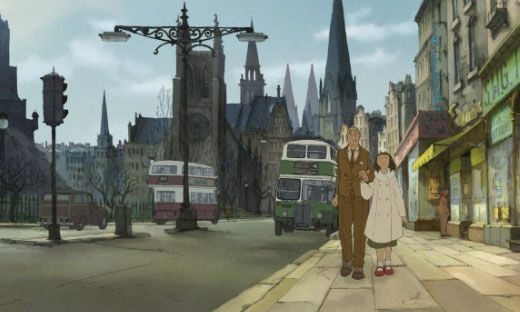
What made “the triplettes of Belleville” so amusing and funny were largely the characters: the French Mafia gangsters, the barber, the big-eared and mousy stage mechanic, etc.
In “the illusionist”, we have a suicidal sad clown, an unsuccessful ventriloquist who pawns his marionette and the city of Edinburgh itself looking kind of bleak, really without any of the exuberance of Belleville.
There are amusing notes throughout but they become less frequent as the story progresses, such as the recurring character of a drunken Scotsman.
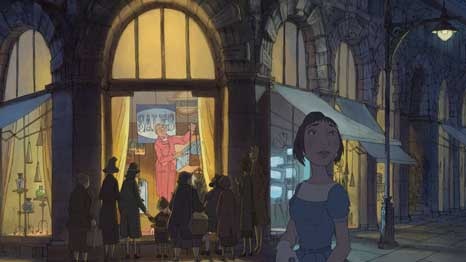
Tatischeff takes on odd jobs to buy things for the girl which he really cannot afford: shoes, a coat, a dress, changing her into a young woman who attracts the attention of a young lad she begins a romance with.
This is when Tatischeff and she part ways, Tatischeff leaving her a note saying there are no magicians.
She remains in Edinburgh, presumably, while the illusionist is left with memories on a train. Again, it would be interesting to read Tati’s screenplay, but Chomet’s adaptation left me feeling it was slightly unfair to the character of the girl.
She came across a bit like a materialistic (parasitic?) little animal, wanting things the poor Tatischeff had to work hard for, finally latching on to a young man once she had acquired the necessary trappings. This isn’t to say she is selfish, as she was shown to care and cook for Tatischeff and his dysfunctional neighbors.
Perhaps it is the distance between the two characters which lends to a bit of distortion. Tatischeff himself, while striving to provide, does not quite appear to actually care for her…
Was she using the poor Tatischeff?
Was that the argument his real-life sister used to convince Tati to leave Schiel and their child?
Even not knowing anything about this sad backstory, there is enough pathos in “the illusionist” to make it a difficult rarity: a melancholy comedy.
Chomet manages to draw a fully realized universe, again with many charms, worth visiting. Not so funny and vibrant as “Belleville” but a skillful tribute to a great artist. “The illusionist” gets four jellybeans.
